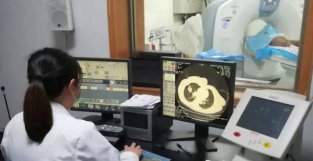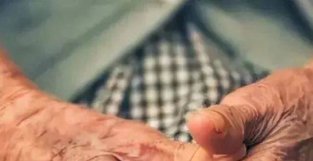1901年首个诺贝尔医学奖——白喉血清疗法——贝林
更新时间:2022-07-22
| 首届诺贝尔生理学奖或医学奖授予德国医学家、细菌学家和血清学家埃米尔·阿道夫·冯·贝林,生于1854年3月15日,逝世于1917年3月31日。他因研究白喉的血清疗法而获得1901年首届诺贝尔生理学或医学奖。
白喉是一种称为白喉棒状杆菌的细菌感染造成的疾病,症状多变,可轻可重,且一般通常是接触到致病菌二到五天后开始出现症状。刚开始出现的症状通常进展较和缓,伴随有喉咙痛和发热。而严重的病人其喉咙会出现灰SE或白SE的斑块,这些斑块可以阻塞呼吸道并且让患者在咳嗽时产生同犬吠一样的叫声,因此也称为义膜新喉炎。颈部会因为肿胀的淋巴结而部分肿大。另外也有一种形式的白喉会感染皮肤、眼睛或者生殖器官。并发症包含心肌炎、神经发炎、蛋白尿,如有血小板低下,还会造成流血不止的状况。心肌炎可能会导致心律不齐,而神经炎则可能导致瘫痪。
白喉通常是经由直接接触或飞沫传染,也可以经由受到污染的物品而扩散。有些患者可能没有症状,但仍有能力传播疾病给他人。白喉杆菌有三种分型,分别能造成不同严重程度的疾病。感染后的症状通常是由细菌所产生的外毒素所引起。观察喉咙的外观及喉头取样培养可以帮助诊断。过去曾被感染过者未来仍旧有感染的机会。 19世纪90年代,贝林开发出一种抗毒素,这种抗毒素并不杀死白喉病箘,而是通过抑制已释放到患者体内的毒素发挥作用。他也因为发现和研制出抗白喉血清,获得第一个诺贝尔生理学或医学奖。 贝林出生在当时普鲁士王国西普鲁士罗森堡县中的一个小村,汉斯朵夫(今属波兰)。他有12个兄弟姐妹,他排行第五。父亲是一位贫穷的乡村教师。小时候就已经通过优秀的成绩显示出他的天才,因此通过不同的奖学金,他得以中学毕业。由于他无法继续获得奖学金来读他想读的医学,因此他决定从军,学习军医。作为军医学生,他读书的同时是服役期,因此可以获得薪水。 1874年10月2日他进入柏林的威廉皇帝军医学院,1878年获得博士学位。1889年受罗伯特·科赫邀请进入柏林传染病研究所。1890年他在这里奠定了血清疗法的基础,并发现了破伤风抗毒素。从1891年开始,他开始研究白喉抗毒素,在这项工作中他获得了保罗·埃利赫的帮助。这项成果最终使得这个当时致命的疾病被征服。 从1892年开始,普鲁士文化部试图为贝林找到一个大学教授的职位,这样他在工作时有更大的自由,可以为自己找研究经费。由于贝林与科赫之间有意见分歧,因此此举更加紧迫。1894年至95年的冬季,贝林被授任为哈雷大学卫生系特聘教授。 1895年贝林获得了马尔堡大学卫生研究所教授和领导的职务。1904年贝林工厂(今天德灵公司的前身之一)在这里建立。1917年他在马尔堡因肺炎逝世,享年67岁。 由于他在血清疗法和被动免疫上的研究,尤其是对白喉治疗的贡献,于1901年被授予首枚诺贝尔生理学或医学奖,并被封为贵族。
Chinese-English translation: Emil Adolf von Behring, a German physician, bacteriologist, and serologist, was given the first Nobel Prize in Physiology or Medicine. His work on serum treatment for diphtheria earned him the Nobel Prize in Physiology or Medicine in 1901. The bacterium that causes diphtheria, Corynebacterium diphtheriae, is the source of the disease. In most cases, the symptoms emerge within two to five days of infection with the pathogenic bacteria. A painful throat and a fever are the most common initial symptoms. Gray or white plaques may form in the throat of those who have the condition in its most severe form. These plaques can obstruct the patient's airway, resulting in a barking cough that sounds like a dog. Swollen lymph nodes will cause some swelling in the neck. Diphtheria can also infect the skin, eyes, and reproductive organs, as well as the lungs. Proteinuria, myocarditis, and inflammation of the nerves are all potential side effects, as might bleeding if thrombocytopenia is present. An irregular heartbeat can be caused by myocarditis or by neuritis, which can lead to paralysis. Aside from direct contact or droplets, diphtheria can spread through contaminated materials. It is possible that even if a patient does not show any signs or symptoms, they can still transmit the disease to others. Each of the diphtheria bacilli kinds causes a distinct degree of illness. It is common for post-infection symptoms to be induced by bacteria-produced exotoxins. Getting a sample of the throat for culture and observing how it looks can help with the diagnosis of tonsillitis. Those who have been exposed to the virus in the past are still at risk of contracting it in the future. Behring created an antitoxin in the 1890s that did not kill diphtheria but instead inhibited the toxin from entering the patient's system. Anti-diphtheria serum, which he discovered and developed, earned him the first Nobel Prize in Physiology or Medicine. During the time of the Kingdom of Prussia, Hans Behring was born in Hansdorf (now in Poland), a small village in the Rosenberg county of West Prussia. He is the fifth of twelve children. His father was a teacher in a poor rural town. Through numerous scholarships, he graduated from school with his academic prowess. To acquire a scholarship to study medicine, which he had always aspired to, he enlisted in the military and became a medic. The fact that he was a medical student in the military meant that he could earn money while he studied. He began his studies at the Kaiser Wilhelm Military Academy in Berlin, Germany, on October 2, 1874, and graduated in 1878 with a PhD in military science. In 1889, Robert Koch invited him to the Berlin Institute of Infectious diseases, where he spent the next year studying infectious disease. In 1890, he laid the groundwork for serum therapy and identified the antitoxin for tetanus. Beginning in 1891, he began working with Paul Erich on a project to discover antitoxins for diphtheria. This triumph led to the eventual abolition of the terrible disease. A university professorship was sought for Behring by the Prussian Ministry of Culture in 1892, so that he might have more freedom to work and get finance for his own research projects. Because of conflicts between Behring and Koch, the relocation became increasingly essential. Behring was made Distinguished Professor of Health at the University of Halle in the winter of 1894-95. University of Marburg professor and head of the Institute of Health Research Behring was appointed in 1895. As a precursor of today's Dering Company, Behring was created here in 1904. In 1917, at the age of 67, he succumbed to pneumonia in Marlborough, New Hampshire. A nobility was bestowed upon him for his work on serum therapy and passive immunity, which he used to cure diphtheria. He was the first recipient of the Physiology or Medicine Nobel Prize in 1901. |


















































































